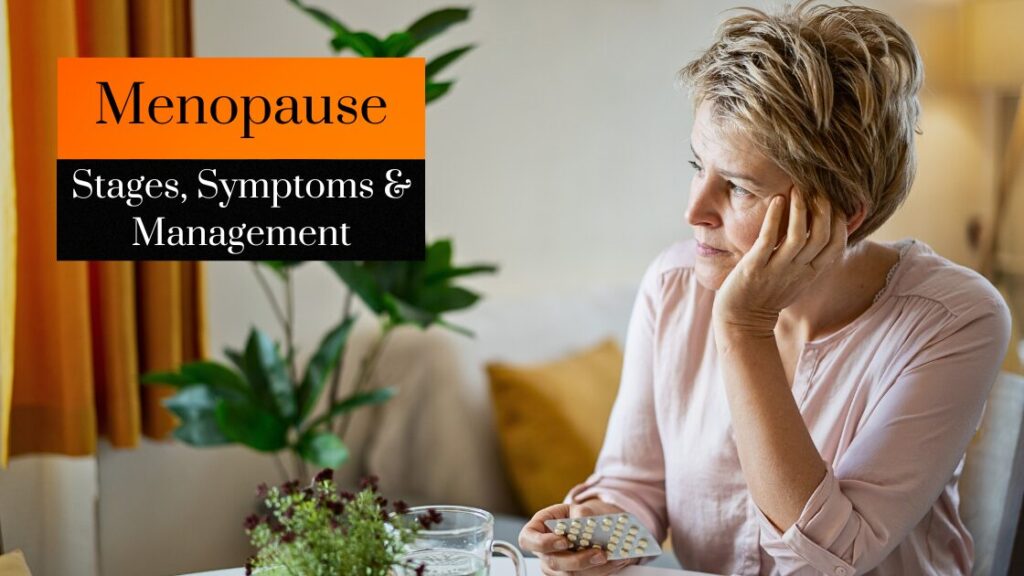Menopause marks a significant transition in a woman’s life, signifying the end of her reproductive years. This natural biological process is often accompanied by a variety of physical and emotional changes. Understanding menopause, its stages, symptoms, and management strategies can help women navigate this phase with greater ease and confidence. At American & U.K. Ozonesthetics, our team of experts understands the challenges of this transition and is dedicated to providing comprehensive care and support.

What is Menopause?
Menopause is defined as the point in time when a woman has not had a menstrual period for 12 consecutive months. As women approach their 40s and 50s, they may start to experience a range of physical and emotional symptoms that signal the onset of menopause. Menopause is a natural biological process that marks the end of a woman’s reproductive years. It occurs when the ovaries stop producing estrogen and progesterone, leading to a range of physical and emotional changes. Our team at American & U.K. Ozonesthetics is committed to helping women manage these symptoms and improve their overall health.
Stages of Menopause
Menopause is preceded and followed by distinct stages as explained by our doctors at London Aesthetics:
Perimenopause:
This transition phase can begin several years before menopause. During perimenopause, hormone levels fluctuate, leading to irregular menstrual cycles and symptoms like hot flashes and sleep disturbances.
Menopause:
This stage is marked by the absence of menstrual periods for 12 months. Symptoms may intensify during this period due to further hormonal decline.
Postmenopause:
The years following menopause are considered postmenopausal. Symptoms may continue for some women, but typically they stabilise. However, the reduced levels of estrogen can increase the risk of certain health conditions, such as osteoporosis and cardiovascular disease.

Common Symptoms
The symptoms of menopause can vary widely among women but commonly include:
Hot Flashes: Sudden feelings of heat that can spread throughout the body, often accompanied by sweating and redness.
Night Sweats:
Hot flashes that occur during sleep, potentially disrupting rest.
Vaginal Dryness:
Reduced estrogen levels can lead to vaginal dryness, discomfort during intercourse, and increased susceptibility to infections.
Mood Changes:
Hormonal fluctuations can contribute to mood swings, anxiety and depression.
Sleep Problems:
Insomnia or difficulty staying asleep can be common.
Cognitive Changes:
Some women experience memory lapses or difficulty concentrating.
Managing Menopause
At American and U.K. Ozonesthetics also known as London Aesthetics in Lahore and Islamabad we offer therapies like Hormone Replacement Therapy or HRT to help manage Menopause. Some other ways for managing menopause include;
- Non-hormonal medications
- Lifestyle changes (diet, exercise, stress management)
- Alternative therapies (acupuncture, herbal supplements)
- Personalised consultations and support

Bibliography
- Menopause – Symptoms and causes – Mayo Clinic. (2023, May 25). Mayo Clinic. https://www.mayoclinic.org/diseases-conditions/menopause/symptoms-causes/syc-20353397#:~:text=Menopause%20is%20the%20time%20that,is%20a%20natural%20biological%20process.
- Professional, C. C. M. (n.d.-c). Menopause. Cleveland Clinic. https://my.clevelandclinic.org/health/diseases/21841-menopause
- What is menopause? (2021, September 30). National Institute on Aging. https://www.nia.nih.gov/health/menopause/what-menopause
- Menopause. (2023, March 31). WebMD. https://www.webmd.com/menopause/menopause-basics
- World Health Organization: WHO. (2022, October 17). Menopause. https://www.who.int/news-room/fact-sheets/detail/menopause






